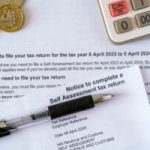
In early 2020, as the COVID-19 pandemic struck, the Office for National Statistics’ Data Science Campus started working with private mobile phone companies to see how anonymised data could help answer some of the problems that society faced.
Dr Arthur Turrell, Acting Director of the ONS Data Science Campus, explains why using this data is important and how ‘faster data’ is becoming the norm.
COVID-19 changed so many aspects of our lives, introducing fundamental changes in how and why people move around—both locally and internationally.
Through the pandemic, it was vital that policymakers had information on the movement of people, to understand how fear of infection was affecting decisions about whether to take transport, to know the overall level of adherence to lockdowns, and to get a grip on the impact of the pandemic on different parts of the UK.
In order to have the most value for decision-making, this information was needed quickly too – the situation was changing week by week and sometimes even day by day.
While more traditional forms of data like surveys were set up in record time to provide essential information on topics such as how the pandemic was affecting mental health, they do not provide the close-to-real-time data needed to rapidly analyse movement in a way that is useful for policy.
Location data, which is already collected by mobile phone and internet providers, can be shared in an anonymised and aggregated form to provide that fast read on movement and travel, and the ONS Data Science Campus employed it to great effect to help steer policy, and policymakers’ understanding during the pandemic.
There was never any suggestion of using these data to monitor, track, or prosecute individuals and, indeed, great efforts were taken to ensure that these data could not be used for this purpose; ONS takes the confidentiality of data extremely seriously.
What this data was able to tell us, very quickly, was that vulnerable older people were following the advice to shield themselves by limiting their movement.
As early as March 2020, we knew that visits and time spent at retail and recreation locations was falling consistently since guidance on working from home was announced on 16 March; by 29 March, it was down 85% compared with the baseline.
The insights we were able to gain were only possible because of the conversations we had with mobile phone providers and internet firms such as O2, Google, Facebook, and BT. Through roaming data, and other services, these companies collect large amounts of information about users that they are careful to keep secure and private. Through careful collaboration, we were able to agree ways of sharing anonymised and aggregated versions of their data to allow the ONS to get objective, real-time evidence on how peoples’ travel behaviours were changing.
The urgent need to find solutions in times of crisis is undeniable, but times of crisis are far from the only use for faster data. Huge opportunities also exist to use these data to improve our understanding and help direct public resources in many areas.
Aggregated and anonymised mobility data are now being explored as a way to enhance statistics on both travel and tourism and on population and migration—playing a role in our mission to deliver richer, more detailed, and more timely updates to these statistics than we’ve ever been able to before.
While we no longer need mobility data to understand how people are moving during a lockdown, we still need faster data if we are to provide the best insights to policymakers and to the general public. Throughout the pandemic, faster indicators have more than proved their usefulness in providing a rapid steer during times of big change: and perhaps will become more effective as we learn how to use them better.
We will continue to experiment with new data sources, and new methods from the frontier of data science, to ensure we are bringing the very best information to light for the UK, whilst remaining committed to maintaining high ethical standards around the use of data.
From solutions to the rising cost-of-living, to better planning of vital health services, to the mitigation of climate change, our society needs a culture where sharing data for the public good is the default, not just the exception in times of crisis. Novel work using mobile phone location data shows just how beneficial a culture of sharing data can be when we get it right.
Read more:
How the pandemic accelerated use of anonymised location data from mobile phones





